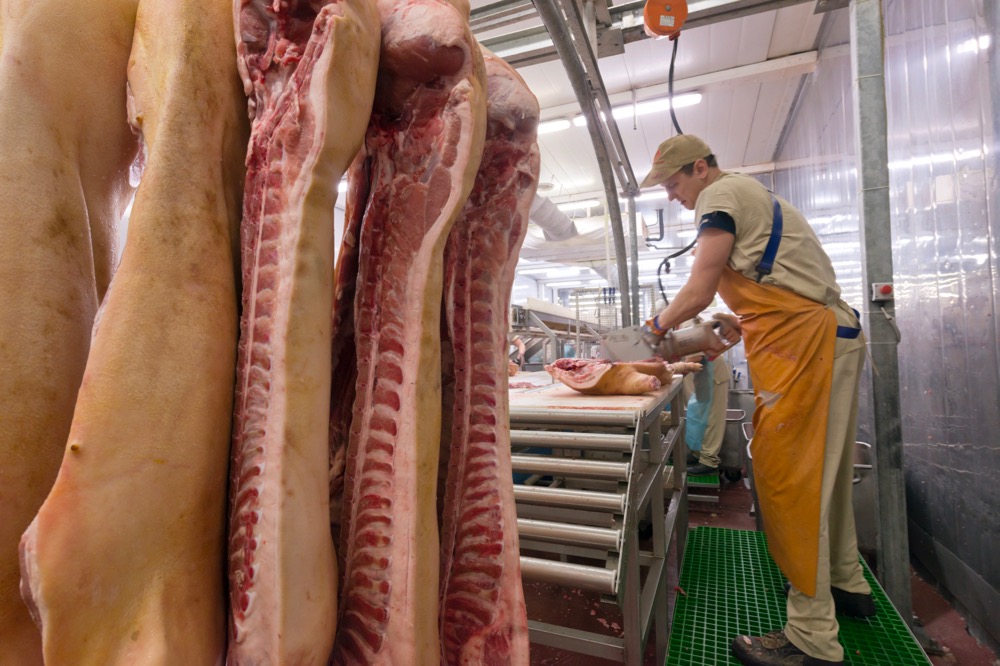Meat industry calls on federal gov to ease foreign worker limits

Meat industry groups are asking the federal government to reinstate a program that expanded industry hiring limits for temporary foreign workers (TFWs) and lengthened the validity of paperwork needed for hiring, citing work shortages and impact on food prices.
“While we understand the federal government is seized with a housing shortage, temporary foreign workers are not the problem, representing only nine per cent of the temporary resident population,” the groups said in a statement today.
In March, the federal government announced that, effective May 1, some sectors would be allowed no more than 20 per cent of their workforces to be made up of temporary foreign workers (TWFs) brought in via the low wage stream—down from the 30 per cent limit introduced via the Workforce Solution Roadmap in 2022.
Read Also

JBS says China blocks beef from US plant over detection of ractopamine
Processor JBS said on Wednesday that Beijing blocked U.S. beef shipments from the company’s plant in Greeley, Colorado, because traces of the feed additive ractopamine were identified in beef destined for China.
The sectors affected were wood product manufacturing, furniture manufacturing, accommodation and food service, and food manufacturing—defined as industries involved in turning agricultural products into ingredients or food items, whether for wholesale or retail, according to the North American Industry Classification System. Construction and healthcare were exempted.
The validity limit of labour market impact assessments (LMIAs) were also reduced. A LMIA is a document employers must obtain before hiring foreign workers. It assesses the impact of hiring foreign workers on the domestic job market and ensures that the employer and job offer are legitimate. In 2022, the maximum validity of LMIAs were extended to 18 months from nine.
The federal government cited reduced job vacancies and a need to reduce Canada’s reliance on foreign workers.
The organizations said the changes are already having an impact on productivity.
“Now with a reduction in the amount of time this assessment is valid as well as the length of time assessors take to review applications, there is concern that the industry will not be able to bring in needed foreign workers,” said Will Lowe, chair of the National Cattle Feeders’ Association.
“If there’s a shortage of workers in the processing sector, it runs the risk that producers can’t ship their product to market, causing uncertainty for producers and consumers alike,” said Rene Roy, chair of the Canadian Pork Council. “We need to help recruit more new Canadians to rural areas, and creating uncertainty defeats our efforts to convince people to come join our industry.”
Meat processors have struggled for years to fill jobs and have come to rely on foreign workers and immigration to maintain their workforces.
Source: Farmtario.com

